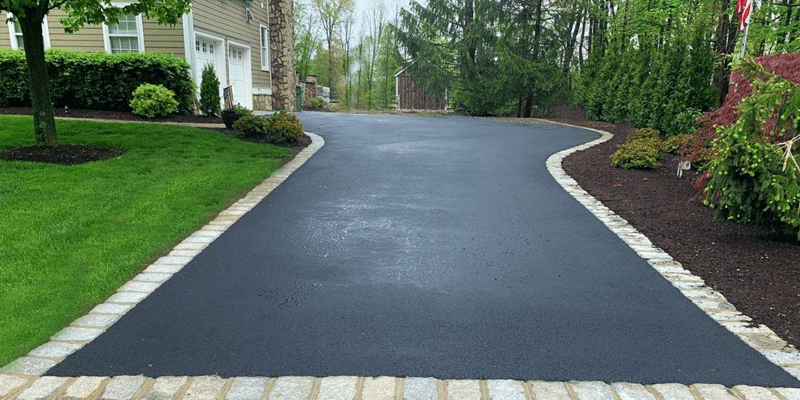Table of Contents
If you live in an area where it snows or rains frequently, choosing the right material for your steep driveway is essential to prevent all kinds of damage. When water is able to sit on top of whatever material you use for your steep driveway, your home can quickly be damaged by frost heaves and erosion. Whatever you do, make sure that you choose a durable material that will remain stable no matter what mother nature throws at it.
The Different Types of Driveway Materials
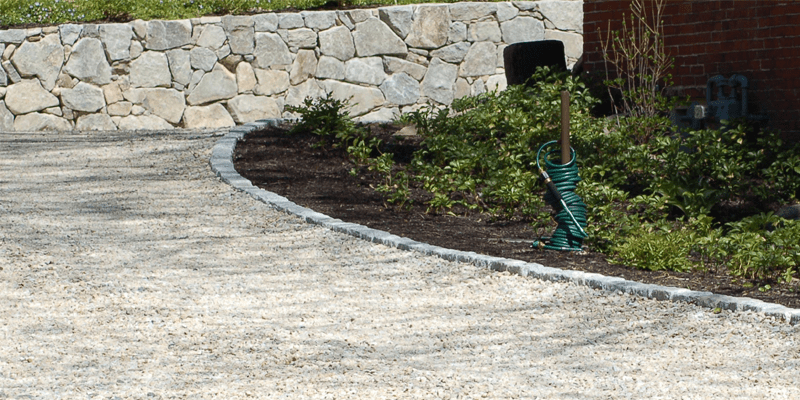
Concrete may seem like an obvious choice for driveways because they are very sturdy and extremely robust. However, there are some drawbacks with this type of paved surface because they trap air underneath them, which leads to corrosion.
Asphalt is the most popular driveway surface in the United States because it is by far the cheapest. However, this type of paved surface needs to be sealed on a yearly basis, or else it will begin to crack.
Gravel is very inexpensive but can become slippery when wet. However, gravel driveways are relatively easy to fix if they do experience any significant damage.
Crushed stone is extremely durable and also quite slip-resistant when dry. However, you will need to break up the stones into smaller pieces before you can use them for your steep driveway; otherwise, they will not allow water to drain through them properly.
Paving stones are an absolutely stunning addition to any home; however, they need to be glued down and may become slippery when it rains.
Metal is a very popular choice for steep driveways because of how durable and low-maintenance it is. However, this material is extremely expensive and can get extremely hot in the sun. This type of material will also require you to use expansion joints every few feet, so the driveway doesn't buckle.
Chip Seal is very inexpensive and can be applied by anyone; however, chip seal may require you to repave your steep driveway every 3-5 years.
The Risk of Using Improper Materials for Your Steep Driveway
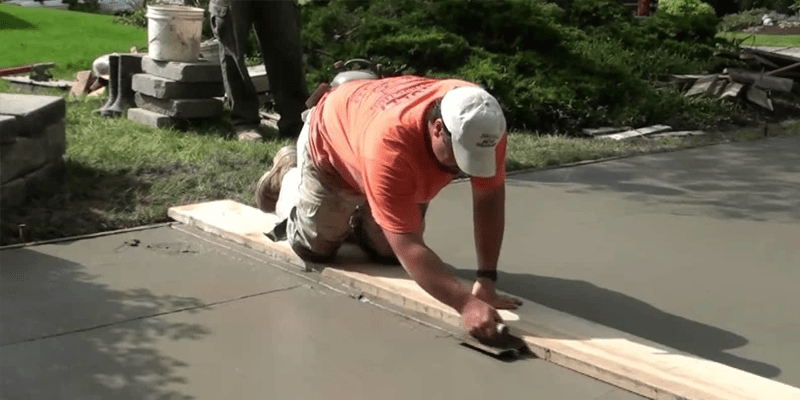
When you are installing a new steep driveway, there are many materials that should not be used because they will cause your home to become damaged easily even when mother nature decides to pass on by. Here is a list of materials to avoid when constructing a steep driveway:
Crushed stone may seem like an affordable option but will quickly erode if rainwater is able to sit on top of them for too long. If your only other option is gravel, it's best not to choose either one of these because they will not drain water well.
Cracked asphalt is just as bad for your home as crushed stone since the water is trapped underneath it and will cause extensive damage to your foundation if enough water builds up.
Concrete that has not had a chance to cure fully is very susceptible to damage from rainwater because it traps moisture beneath the surface, which causes cracks. Concrete driveways are also easily stained by mud or other debris, which can make your steep driveway look unsightly over time.
Paving stones are beautiful, but their edges are incredibly sharp, which can pose quite a hazard if you have small children who like running around outside on the weekends. This material needs to be glued down, so if any of the glue seeps out, you could slip and fall on this type of driveway.
Metal is not a good choice for steep driveways because it cannot be installed with expansion joints which can lead to buckling. Additionally, this material will become extremely hot in the summertime and extremely cold during the winter months; it is important that you don't install metal on your steep driveway's surface if it is always freezing or always blistering hot outside.
One of the Top Steep Driveway Materials: Chip Seal

Chip seal (a mixture of tar and crushed stone) can be an excellent option for those looking for a low-cost way to repair their steep driveway. This is one of the most affordable ways to make sure that your home does not sustain any damage when it rains.
The best part about chip seal is that you can easily apply the material yourself with the help of a premixed bag of tar and crushed stone, a bucket of water, and a broom. After applying the mixture to your driveway, all you have to do is sweep it in with a broom so that all of the loose debris has been swept off.
The Risks of DIY Driveway Installation
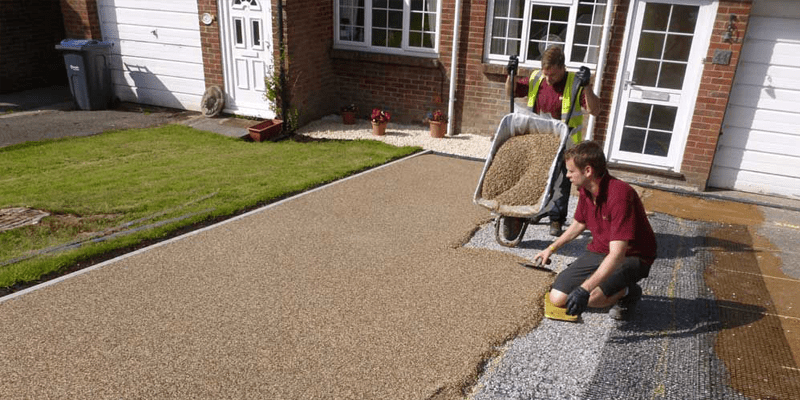
Is there really any reason to try and install your own steep driveway? Although you can purchase premixed bags of tar and crushed stone, you should still hire a professional contractor to apply it correctly for you.
When the chip seal is n applied properly, the base beneath the tar could be damaged, which will cause significant problems for you later on. If rainwater is not able to seep into the earth through this material (and instead pools up on top of it), then the material cannot do its job. This means that your home's foundation will start to deteriorate.
If water continues to pool up on top of the chip seal over a long period of time, then cracks in the asphalt or concrete underneath may also start to develop. It is extremely easy to patch up cracks in these driveway materials. However, it can be a very costly fix if your steep driveway is made of asphalt or concrete.
Be Sure to Always Hire a Licensed Professional
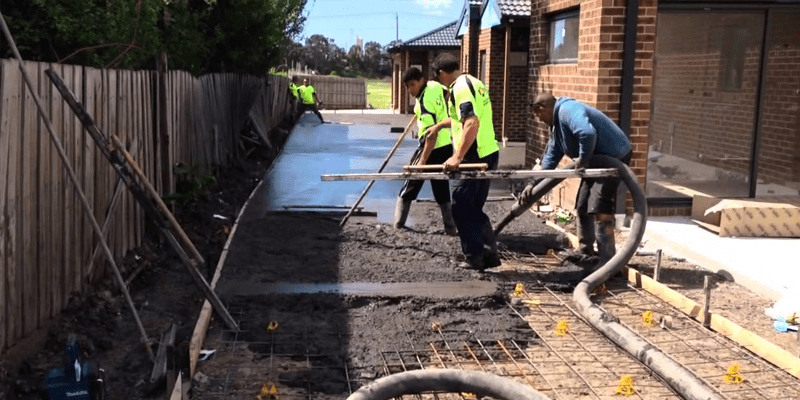
No matter what material you choose for your steep driveway, it is always important to hire a licensed professional. Ensure that your steep driveway will be built correctly with the best possible materials by hiring someone who has experience working on home projects like this one.
To find out more about how to correct any damage that may have already been done to your steep driveway, contact us today! We are here to help you determine which of our many services will work best for your home's needs. Our team has decades of combined experience, and we will put that knowledge to work for you quickly and efficiently.
If you're considering hiring someone other than a licensed contractor, please remember that repairing steep driveways is extremely dangerous work due to the high chance of injury involved with this type of project. If your steep driveway is cracked or buckling, call us immediately so we can help you get it back in shape again!

